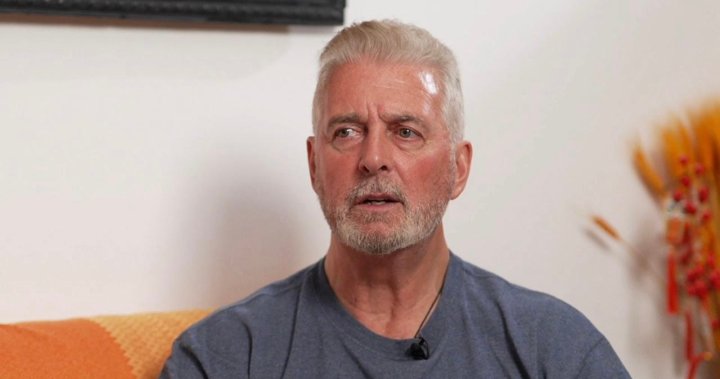Dave Lavery, a seasoned Canadian veteran with extensive experience in international humanitarian work, was unexpectedly detained by the Taliban upon arrival in Kabul on November 11, 2024. His two-decade history of working in Afghanistan, coupled with his work evacuating vulnerable Afghans after the Taliban’s resurgence in 2021, seemingly hadn’t flagged him as a threat in the past. However, this time was different. Upon landing, he was apprehended and subjected to 77 days of captivity, marked by persistent interrogations focused on accusations of espionage. The Taliban’s suspicion was fueled by the 18 visas and plane tickets he carried for Afghan families destined for Canada, as well as a beret and combat jacket in his luggage, intended for a Remembrance Day memorial service. Despite the stressful ordeal, Lavery maintained his composure, drawing on his military training to navigate the difficult circumstances. The exact details of his release, including potential negotiations by the Canadian government or Qatari intermediaries, remain unclear.
Lavery’s detention began at Hamid Karzai International Airport, where he was apprehended shortly after retrieving his luggage. The discovery of the visas, tickets, and military paraphernalia heightened the Taliban’s suspicion, leading to his blindfolded transport to a detention cell. There, he began his 77-day ordeal, facing repeated questioning about his alleged espionage activities. The interrogations focused on potential connections to Canadian and Israeli intelligence agencies and his involvement in Ukraine. Despite the pressure, Lavery maintained his innocence, enduring the psychological strain of the accusations without experiencing physical torture. To improve his chances of contacting his family, he feigned illness, hoping to be transferred to a hospital. While this tactic resulted in a move to a slightly better “guest house,” it also exposed the Taliban’s awareness of his online persona, “Canadian Dave,” further undermining his attempts to portray himself as frail.
The “guest house” offered a slight improvement in conditions, including access to CNN, which provided a connection to the outside world. However, the interrogations continued, with the Taliban searching him for tracking devices and probing his past activities. A subsequent transfer to his own Kabul villa, albeit under house arrest, marked a further improvement in his living situation, offering a semblance of normalcy. The breakthrough came in late December when he finally made contact with his family. A discovered cell phone allowed a clandestine call to his son, Brant, who reassured him of ongoing efforts by the Canadian government and Qatari officials to secure his release. This news bolstered Lavery’s spirits and provided a glimmer of hope amid the uncertainty.
The clandestine phone calls, facilitated by a forgotten mobile device, became a lifeline for Lavery, enabling crucial communication with his family and providing updates on the diplomatic efforts underway. Brant Lavery played a vital role, acting as a conduit between his father and the outside world. He relayed information about the Qatari government’s involvement and the Canadian government’s efforts, providing reassurance and bolstering his father’s morale. The impending birth of Brant’s first child further underscored the urgency of securing Lavery’s release, motivating Brant to tirelessly advocate for his father’s freedom through direct communication with Canadian officials, including Foreign Affairs Minister Mélanie Joly. The combined efforts of family, Canadian diplomats, and Qatari intermediaries built momentum toward a resolution.
After 77 days of confinement, Lavery’s release finally came. The Taliban informed him that the Afghan courts had deemed his cooperation sufficient, despite never specifying the charges against him. The news of his imminent release was met with elation, documented in his journal as he prepared to leave. Upon arrival in Doha, he was greeted by a delegation of Qatari officials, highlighting the significant role they played in securing his freedom. The reunion with his wife, Junping, and son, Brant, marked the end of his ordeal, allowing him to return to Dubai, where he recounted his experience. Lavery commended the efforts of Global Affairs Canada and Minister Joly, acknowledging their crucial role in his safe return. The swift resolution of his case, according to Qatari officials, was unprecedented, emphasizing the unusual circumstances surrounding his detention.
Lavery’s ordeal underscored the complexities of operating in post-Taliban Afghanistan, even for seasoned humanitarian workers. The experience, though harrowing, highlighted the dedication of individuals like Lavery who continue to provide support in challenging environments. His commitment to helping Afghan families seeking refuge in Canada, combined with his long history of humanitarian work, likely played a significant role in the concerted efforts to secure his release. The successful evacuation of the Afghan families he intended to assist, coupled with the joyous anticipation of his grandson’s birth, brought a positive conclusion to a difficult chapter. The ordeal served as a reminder of the importance of international cooperation and the tireless efforts of individuals and governments working behind the scenes to resolve complex situations and ensure the safe return of their citizens. While Lavery has expressed no intention of returning to Kabul, his experience has undoubtedly left an indelible mark, underscoring the precarious nature of humanitarian work in conflict zones.



